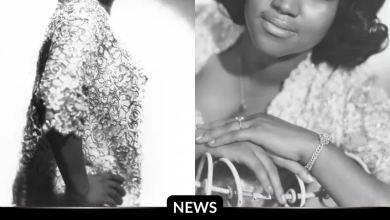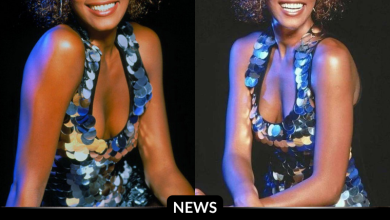“They Called Paris Jackson Greedy for Receiving $65 Million—Until She Asked Where the Other $2 Billion Went”
OPINION: This article may contain commentary which reflects the author's opinion.
For years, Paris Jackson has lived with the weight of a famous last name. The daughter of Michael Jackson, she’s navigated relentless headlines, public judgment, and the glare of a spotlight she never asked for. But recently, when reports surfaced that she’d received $65 million from her father’s estate, the backlash was immediate. Critics on social media called her entitled, greedy, and ungrateful.
That narrative, however, changed almost overnight—because Paris Jackson asked a question that stopped the conversation cold: Where did the rest of the money go?
Shifting the Spotlight
In a candid interview, Paris addressed the criticism head-on. “They called me greedy,” she said. “But all I did was ask why people who never sang a note of my father’s music were getting paid more than his own family.”
Her words struck a chord. Since Michael Jackson’s passing in 2009, the King of Pop’s estate has reportedly generated over $2 billion, with revenue coming from posthumous music releases, licensing deals, documentaries, and even a hit Broadway musical. Yet, court records show that while Paris and her brothers—Prince and Blanket (Bigi)—received significant sums, vast portions of the estate’s earnings have gone elsewhere.
The Question That Broke the Internet
The real tipping point came when Paris publicly questioned the large bonuses paid out to lawyers and financial managers—some receiving $625,000 each for their services. These revelations, drawn from court documents, raised eyebrows among fans and industry observers alike.
Paris’s approach wasn’t emotional outburst; it was calm and direct. In a viral social media post, she wrote, “If defending my father’s legacy makes me greedy, then so be it. But don’t call it inheritance when it looks like exploitation.”
Within hours, the internet’s tone shifted. Instead of criticism, Paris received an outpouring of support. Fans pointed out the hypocrisy of an industry that profits from Michael Jackson’s legacy while criticizing his children for demanding transparency and fairness.
Fighting for More Than Money
Insiders emphasize that Paris’s motivation is not personal wealth but respect—for her father’s legacy and for the truth. Having built her own career in music, modeling, and activism, Paris has repeatedly demonstrated a desire to be known for her own accomplishments. This battle, she insists, is not about her—it’s about Michael.
“My dad gave everything—his childhood, his peace, his soul—for the world’s entertainment,” Paris said. “The least we can do is make sure his legacy isn’t being drained by people who only see him as a brand.”
Asking the Hard Questions
What Paris Jackson did was more than question an estate’s accounting. She brought attention to a system that, far too often, rewards intermediaries over the artists and families who carry both the cultural and emotional weight of a legend’s legacy.
In her own words: “They told me to be quiet. But my father didn’t raise me to stay silent when something’s wrong.”
By speaking out, Paris Jackson forced a conversation not just about money, but about integrity, accountability, and the responsibility owed to those who made American music history. For many, her courage is a reminder that sometimes the most important question isn’t “how much”—but “who for?”
And in that moment, Paris Jackson gave a voice to a new kind of legacy—one not measured in dollars, but in truth.



